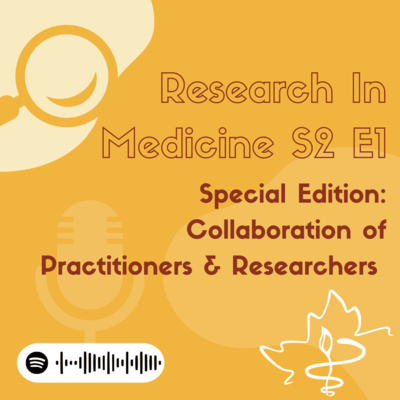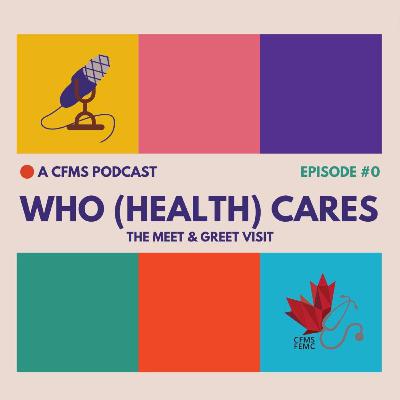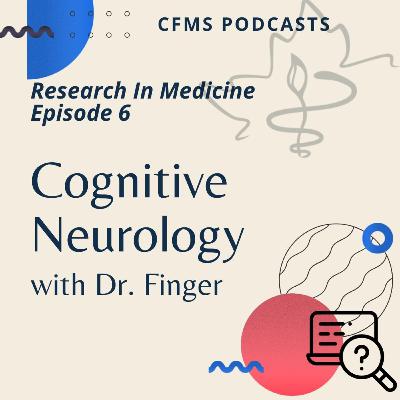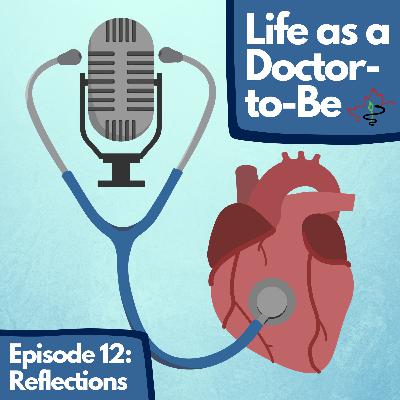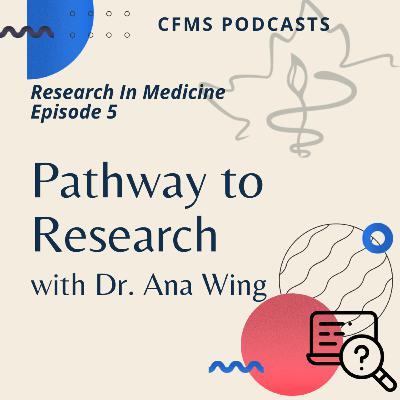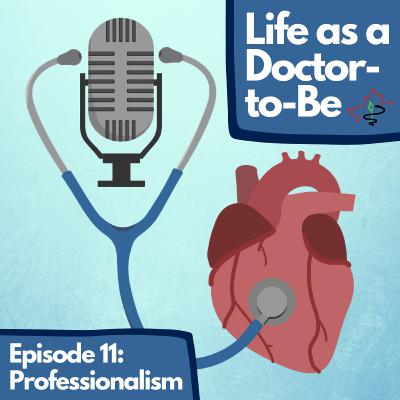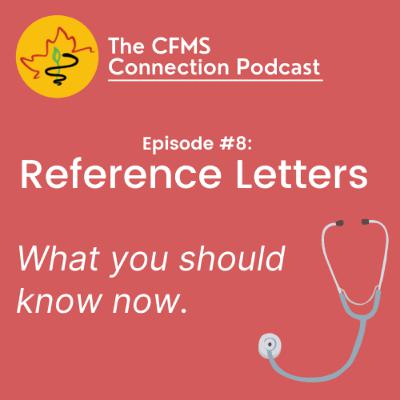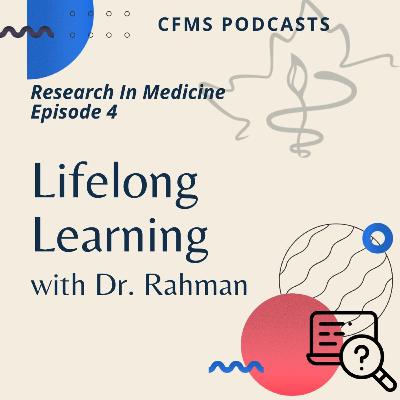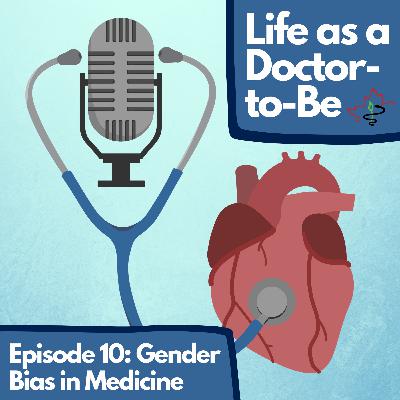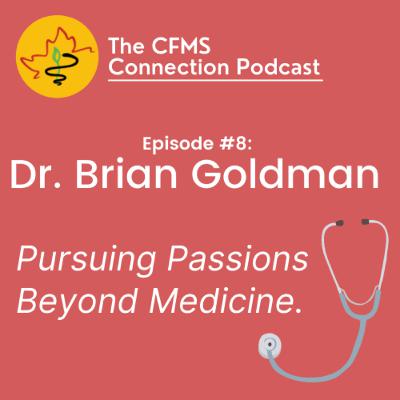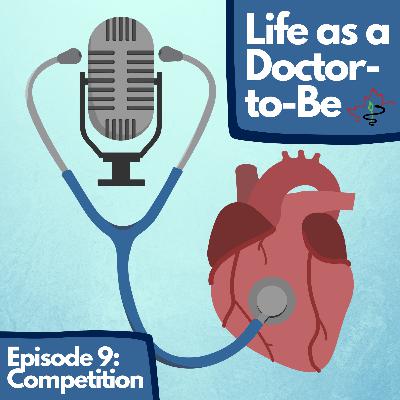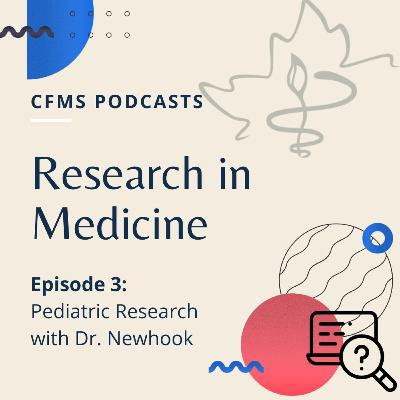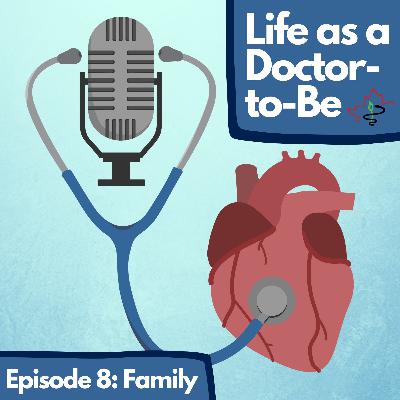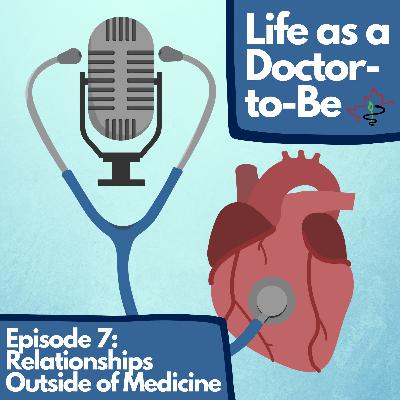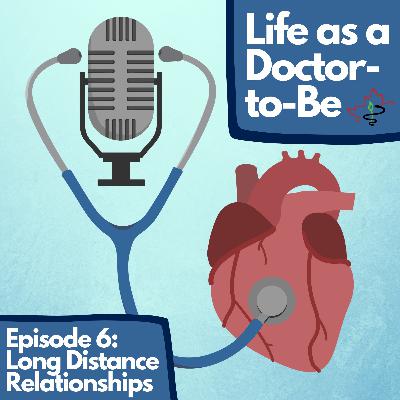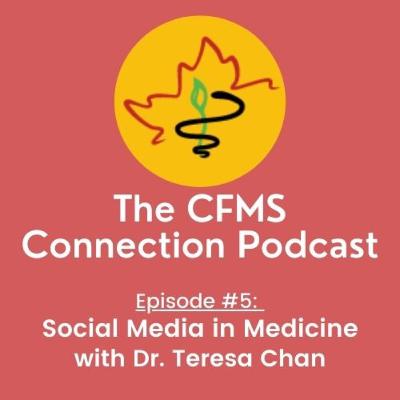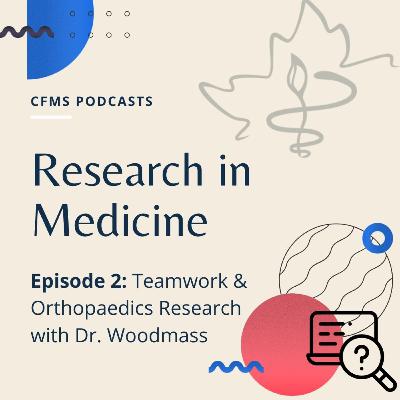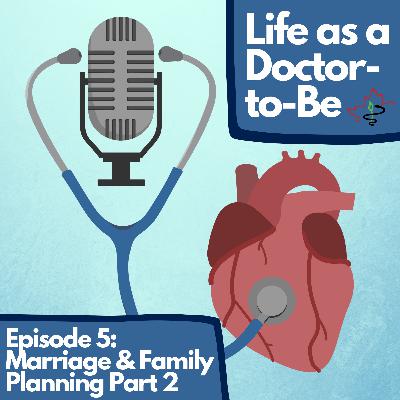Discover CFMS Podcasts
CFMS Podcasts

CFMS Podcasts
Author: Canadian Federation of Medical Students
Subscribed: 7Played: 23Subscribe
Share
© Canadian Federation of Medical Students
Description
LDTB= Life as a Doctor to be
CC= CFMS Connection Podcast
RIM= Research in Medicine
Welcome to the Canadian Federation of Medical Students Podcast Series. We connect, support and represent our membership as they learn to serve patients and society. Our CFMS Podcast series is a collection of three separate series - Research in Medicine, Life as a Doctor To Be and the CFMS Connection podcast series.
CC= CFMS Connection Podcast
RIM= Research in Medicine
Welcome to the Canadian Federation of Medical Students Podcast Series. We connect, support and represent our membership as they learn to serve patients and society. Our CFMS Podcast series is a collection of three separate series - Research in Medicine, Life as a Doctor To Be and the CFMS Connection podcast series.
49 Episodes
Reverse
This month the CFMS Research in Medicine Podcast series presents a special edition entitled, Collaboration of Practitioners & Researchers. In this episode, a medical student and biomedical graduate student showcase how clinical practice and medical research are different sides of the same coin. During this seminar you will hear Kevin Zhao of McMaster and Christie Costello of MUN discuss the topic of arthritis.
Hey! Welcome to our new series, Who (Health) Cares. This is our Meet and Greet episode, where we meet our 3 new hosts, Kieran, Erin and Rachel. We talk a bit about ourselves, a bit about why we are doing this and a bit about what you can expect throughout the series.
In Who (Health) Cares, we will be getting to know physicians from across Canada and across specialties. We won't only be talking about medicine, but also about who they are. Stay tuned for more episodes to come, and follow us on social media, @cfmspodcast on Instagram.
Credits:
Hosts: Erin Lin, Rachel Tooth, Kieran Chalmers
Editor: Kieran Chalmers
Social Media and Cover Art: Adela Gottardi
Music: Slade Lake, Alex Baldassare
This month the CFMS Research in Medicine Podcast interviews Dr. Agnes Wong. Dr. Wong is a Professor of Ophthalmology, Neurology, and Psychology at the University of Toronto, and an active staff ophthalmologist at the Hospital for Sick Children. In this episode, she reveals her secrets to successful grant writing; her opinion regarding the optimal timing of when to pursue a PhD; advice for medical students on career exploration & wellness; and more!
This month the CFMS Research in Medicine Podcast interviews Dr. Elizabeth Finger. Dr. Finger is a Professor of Neurology at Western University. In this episode we talk about her research on empathy in frontotemporal dementia and her pathway to becoming a clinician-scientist.
In episode 12 of the LDTB series, the 7 co-hosts reflect on the experiences they’ve had, lessons they’ve learned and memories they’ve made over the past year.
This month the CFMS Research in Medicine Podcast interviews Dr. Ana Wing. Dr. Wing is a Professor of Neurology at Queen’s University. In this episode we talk about her journey across the globe from medical school to becoming a new faculty member in 2020.
In episode 11 of the LDTB series, Karine and Lucas discuss their definitions of professionalism. They explore the ways that notions of professionalism play out in clinical settings and on social media. Lastly, the co-hosts delve into how cultural differences and the hospital hierarchy can make professionalism challenging to navigate.
Reference letters (aka letters of reference) are another component to the CaRMS R1 Application. This component is of particular interest because it's not something you can start a week before the application is due...or even when the application opens. The foundation for good letters of reference come throughout your clerkship rotation, so tune into this episode to hear what should start thinking about now. In this episode, we interview Dr. Melanie Lewis, associate Dean of Learner Advocacy & Wellness at the University of Alberta. She chats about the best way to ask for letters, who you should ask/from what specialties, how to gently remind physicians who haven't submitted your letter when the deadline approaches, and much more.
This month the CFMS Research in Medicine Podcast series interviews Dr. Proton Rahman. Dr. Rahman is a distinguished physician and researcher in the discipline of Rheumatology at Memorial University’s Faculty of Medicine. His many accomplishments include over 300 published research articles and being recognized in Canada’s top 40 under 40.
In this episode, we explore his path to research and how he got into the field of genomics during its infancy. Dr. Rahman explains why he conducted a research fellowship and how he has continued to educate himself throughout his career. Finally, he offers advice to budding medical researchers and his opinion on emerging fields of research.
In episode 10 of the LDTB series, Audrey and Brittany discuss the experiences they’ve had as women going through medical school. They explore how gender roles affect them, both within formal learning settings and clinical settings. They then discuss how these gender roles can affect notions of professionalism and specialty choice.
How can you find success in your interests outside of medicine? Hear from Dr. Brian Goldman, host of the popular CBC radio show White Coat Black Art, about his story and advice on pursuing your passions alongside a career in medicine.
Dr. Goldman has had a long and successful career in various forms of media. In addition to hosting White Coat Black Art for the past 15 years, he also hosts a new CBC podcast called The Dose and has written 3 books, with another in the works. He has also been a medical reporter for Television and print (newspapers, medical journals and the like) and is a public speaker- including a TedTalk that he gave about medical errors that has over a million views.
In this episode, hear his journey and what made him so successful across multiple platforms for so long. He gives advice about pursuing other interests alongside a career in medicine, whatever those interests may be- music, sports, politics, art...you name it. We chat about how to adapt your work to the needs of your audience and the people you work for, rolling with the punches and taking criticism, embracing your mistakes and learning from them, and so much more.
Dr. Goldman's Twitter: @NightShiftMD
White Coat Black Art on Twitter @cbcwhitecoat
In episode 9 of the LDTB series, Peter and Kassandra discuss the competitive nature of medical school. They discuss the competition that they encountered when applying to medicine and how this evolved once they were accepted. The co-hosts then address the topic of residency matching and explore how competition can persist throughout a medical career.
This month the CFMS Research in Medicine Podcast series interviews Dr. Leigh Ann Newhook. Dr. Newhook is a Pediatrician at the Janeway Children’s Hospital and Associate Professor of Pediatrics at the Faculty of Medicine, Memorial University. In this episode we talk about her broad approach to research in pediatrics and giving back as a member of team Broken Earth in Haiti. Dr. Newhook also gives insight into how you can apply research to real problems you encounter in the clinic.
RIM= Research in Medicine series
In episode 8 of the LDTB series, Lucas, Brittany and Karine each explore their unique familial backgrounds. They describe the support that they’ve received from their families and address how medical training has influenced these relationships.
Medical "Pimping": it's so much more than simply getting a question right or wrong. A student's reaction and response in "pimping" scenarios speaks volumes. So tune into this interview with Dr. Stephanie Smith to learn more about the practice of "medical pimping" to prepare yourself and learn how to become a better student and leave the best impression possible on your preceptors and peers.
Please note: we refer to this practice as "pimping" as it is a commonly used term in medicine. However, the CFMS does not endorse perpetuation of the word. Instead, we would like to flip the narrative and refer to this practice as "medical knowledge exploration and growth".
CC= CFMS Connection Podcast
In episode 7 of the LDTB series, Karine, Peter and Audrey discuss the benefits of maintaining relationships outside of medicine. They consider the ways that medicine has affected these relationships and how it has made them at times, extremely challenging. The three hosts then compare these to the relationships that they typically have with their medical colleagues. Finally, to conclude the episode, they reflect on how maintaining relationships outside of medicine will help them become better future physicians.
In this episode of LDTB, Dakoda, Kassandra, and Peter have a candid discussion about the reality of long-distance relationships as a medical student. They share how they’ve stayed in touch with their partners, some of the challenges they’ve faced, and tips for keeping the relationship thriving from afar! Also addressed is planning for an uncertain future with CaRMS matching.
In this episode, we interview Canadian medicine social media guru and Emergency Physician, Dr. Teresa Chan. We chat about how to use social media for patient advocacy, to connect for professional development, to build a brand/identity as a medical professional, to share research and educate the public, and to help you connect with CaRMS programs across the country.
Links:
Dr. Chan’s Twitter: @TChanMD & website: https://www.tchanmd.com/about-me
MacEmerg Podcast: https://sites.google.com/medportal.ca/macemerg-cpd/podcast
CC= CFMS Connection Podcast
The CFMS Research in Medicine Podcast Series interviews Dr. Woodmass from @UM_RadyFHS this month! We talk with him about “outcomes research” in orthopaedic surgery and the importance of teamwork in research. Are you hesitant about doing research? He can tell you why it’s worth a try.
In this second part of their discussion on marriage and family planning, Kassandra, Lucas and Dakoda invite their partners to share their perspectives on how their relationships have been affected by medical school. Their partners discuss the challenges that they face as the spouses of medical students and the strategies that they’ve used to overcome these obstacles together.


